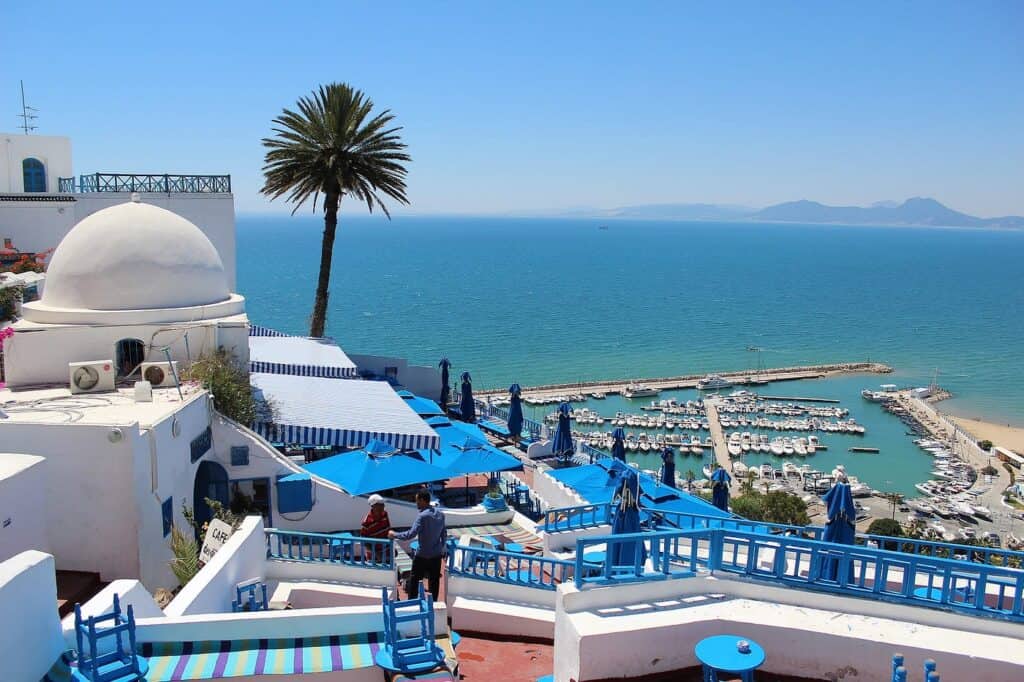Tunisia, located in North Africa, is a country rich in culture, history, and natural beauty. Its diverse landscapes range from Mediterranean beaches to the Sahara Desert, making it a well-liked destination for tourists and expatriates. With its strategic location and relatively affordable real estate prices compared to other Mediterranean countries, Tunisia has attracted growing interest from foreign investors seeking to buy property. If you’re a foreigner interested in purchasing property in Tunisia, you may wonder if it’s possible and what the legal and procedural requirements are.
In this comprehensive guide, we will explore whether foreigners can buy property in Tunisia, the legal framework surrounding property ownership, the process involved in purchasing real estate, and the benefits and challenges of investing in Tunisian property.
Can Foreigners Buy Property in Tunisia?
Yes, foreigners can buy property in Tunisia, but there are some restrictions and requirements to be aware of. Tunisia allows foreign nationals to purchase real estate, but the process can be slightly more complicated than it is for Tunisian citizens. Foreign buyers must comply with specific legal procedures, including approval from the Ministry of Finance, and there are limitations on the types of properties foreign nationals can acquire.
Key Legal Considerations for Foreigners Buying Property in Tunisia
Foreign Ownership Regulations
While Tunisia generally allows foreign nationals to buy property, certain restrictions apply. Foreigners are limited in the type of properties they can purchase and the areas where they can acquire real estate.
- Property Type Restrictions: Foreigners are not allowed to purchase agricultural land reserved for Tunisian citizens. This restriction extends to properties used for agricultural purposes, including farms and rural land. However, foreigners can purchase residential or commercial properties in urban areas and some tourist zones.
- Tourist Areas: Certain designated tourist areas are one of the main exceptions to property restrictions for foreigners. In these zones, foreign nationals can buy property, particularly vacation homes or commercial investments in the hospitality sector. These areas are typically located along Tunisia’s Mediterranean coastline, where many expatriates and investors are interested in owning property.
Approval from the Ministry of Finance
Foreigners who wish to purchase property in Tunisia must receive approval from the Ministry of Finance. This process is not automatic and involves applying for approval before the purchase can be completed. This approval ensures that the buyer is not violating foreign ownership or land use laws. It is crucial to seek legal assistance to navigate this process, as the approval can take several weeks or months.
Legal Framework for Property Transactions
Buying property in Tunisia is regulated by Tunisian law, and several documents and procedures are required to ensure the transaction is legally binding. Key documents involved in the property transaction process include:
- Title Deed: A clear and valid title deed is essential to prove that the seller has legal ownership of the property. Verifying that the title deed is free from any encumbrances, liens, or legal disputes is important.
- Notary: In Tunisia, property transactions must be handled by a notary (notaire). The notary is responsible for drafting the sales contract, registering the transaction, and ensuring the title is legally transferred. The notary ensures the transaction complies with Tunisian law and handles the necessary paperwork.
- Sales Agreement: Both the buyer and the seller will sign a formal sales agreement. This agreement outlines the terms of the sale, including the purchase price, payment schedule, and any conditions related to the transaction.
Financing Property Purchases
Foreigners interested in purchasing property in Tunisia generally face challenges regarding securing financing. Tunisia does not have the same access to foreign mortgage loans as other countries, such as the U.S. or European nations. Most foreign buyers must pay the full purchase price upfront in cash. However, some local banks may offer financing to foreign nationals, particularly if the buyer has strong financial ties to Tunisia or plans to live there.
Foreign buyers may need to work with specialized banks or lenders familiar with international property transactions. In some cases, foreign nationals may be required to provide larger down payments than Tunisian citizens.
Property Taxes and Fees
Foreign property owners in Tunisia are subject to various taxes and fees, similar to Tunisian citizens. These taxes can include:
- Property Tax: Tunisia levies an annual property tax (taxe foncière) based on the property’s value. The tax rate varies depending on the location and size of the property.
- Capital Gains Tax: If a foreigner sells the property and makes a profit, they may be subject to capital gains tax. The tax rate varies, and it is important to consult with a tax advisor to understand the tax implications of buying and selling property in Tunisia.
- Notary Fees and Registration: When purchasing property in Tunisia, buyers must pay notary fees and registration costs, typically a percentage of the property’s value. These fees include the cost of registering the sale with the land registry and notarizing the sales contract.
Inheritance and Estate Laws
In Tunisia, inheritance laws can be more complicated for foreign nationals, particularly if the property is passed on to non-Tunisian heirs. Tunisia follows an Islamic inheritance law system, meaning that inheritance is typically divided according to the Quran’s guidelines, with specific shares allocated to family members. Foreign nationals who wish to leave property to heirs may face challenges if the heirs are not Tunisian citizens. Working with a lawyer experienced in Tunisian inheritance law is advisable to ensure that your property is passed on according to your wishes.
The Process of Buying Property in Tunisia
If you are a foreigner interested in buying property in Tunisia, it’s important to understand the steps involved in the purchase process. Here is a general overview of the steps you will need to take:
Choose the Property
The first step is to find the right property. Tunisia offers a variety of properties, including apartments, villas, houses, and commercial real estate. Popular areas for foreigners to buy property include the capital city, Tunis, and coastal cities like Sousse, Hammamet, and Djerba, known for their tourist appeal.

Get Approval from the Ministry of Finance
Before purchasing, you must apply for approval from the Ministry of Finance. This approval is necessary for foreign nationals to guarantee that the purchase complies with local laws. The application process can take several weeks, so planning is essential.
Hire a Notary
Once you have received approval, you will need to hire a notary to handle the legal aspects of the transaction. The notary will draft the sales contract, conduct a title search, and ensure the sale is legally binding.
Sign the Sales Agreement
The buyer and seller will sign a formal sales agreement outlining the terms of the transaction. This agreement will be legally binding, and both parties must adhere to its terms.
Pay for the Property
Once the sales agreement is signed, the buyer must pay for the property. As mentioned earlier, foreign buyers must pay the full purchase price upfront, although financing options may be available through local banks.
Register the Property
After the sale, the property must be registered with the land registry to transfer ownership officially. The notary will handle this process and ensure the title is properly transferred to the buyer’s name.
Pay Property Taxes
After purchasing the property, foreign buyers are required to pay property taxes annually and any other fees associated with the purchase.
The Benefits of Buying Property in Tunisia
- Affordable Real Estate: Compared to other Mediterranean countries, property prices in Tunisia are relatively affordable, making it an attractive destination for foreign buyers. Whether you’re looking for a vacation home or an investment property, Tunisia offers competitive prices.
- Tourism and Rental Potential: Tunisia’s popularity as a tourist destination means that foreign property buyers can benefit from the potential to rent their properties to tourists. Areas like Hammamet, Sousse, and Djerba see a high volume of visitors, which can provide a steady stream of rental income.
- Strategic Location: Tunisia’s proximity to Europe, especially southern Europe, makes it ideal for foreign investors looking for real estate in a culturally rich and easily accessible country.
- Investment Opportunities: With a growing economy and strong tourism sector, Tunisia offers great potential for long-term real estate investments. Foreign investors may find opportunities to purchase commercial properties, resorts, and land that can yield high returns.
Frequently Asked Questions (FAQs)
Can foreigners buy agricultural land in Tunisia?
No, foreigners are prohibited from purchasing agricultural land in Tunisia. Foreign buyers can only acquire residential or commercial properties in urban areas or designated tourist zones.
Do foreigners need to get approval from the government before purchasing property in Tunisia?
Yes, foreigners must receive approval from the Ministry of Finance before buying property in Tunisia.
Can foreign nationals obtain financing to buy property in Tunisia?
Tunisia offers limited financing options for foreign nationals. Most foreign buyers must pay for the property in cash, although some local banks may offer financing for those with strong financial ties to the country.
Are there any tax implications for foreign property owners in Tunisia?
Foreign property owners are subject to property taxes, capital gains taxes, and registration fees. It is important to consult with a tax professional to understand the full tax implications of owning property in Tunisia.
Can foreign nationals inherit property in Tunisia?
Foreign nationals can inherit property in Tunisia, but the inheritance laws follow Islamic principles, making it more complicated for non-Tunisian heirs.
Conclusion
In conclusion, while there are some restrictions and requirements for foreign nationals interested in buying property in Tunisia, investing in real estate in this beautiful and historic country is certainly possible. By understanding the legal framework, obtaining the necessary approvals, and working with experienced professionals, foreign buyers can successfully navigate Tunisia’s property market and enjoy its many benefits.










